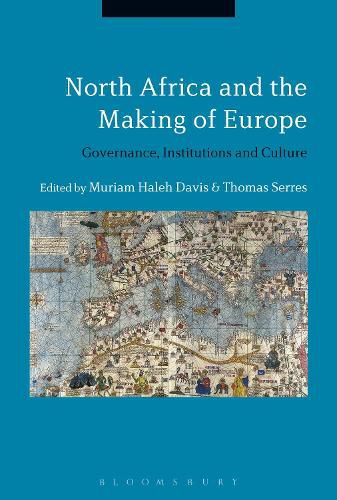Readings Newsletter
Become a Readings Member to make your shopping experience even easier.
Sign in or sign up for free!
You’re not far away from qualifying for FREE standard shipping within Australia
You’ve qualified for FREE standard shipping within Australia
The cart is loading…






This innovative edited collection brings together leading scholars from the USA, the UK and mainland Europe to examine how European identity and institutions have been fashioned though interactions with the southern periphery since 1945. It highlights the role played by North African actors in shaping European conceptions of governance, culture and development, considering the construction of Europe as an ideological and politico-economic entity in the process.
Split up into three sections that investigate the influence of colonialism on the shaping of post-WWII Europe, the nature of co-operation, dependence and interdependence in the region, and the impact of the Arab Spring, North Africa and the Making of Europe investigates the Mediterranean space using a transnational, interdisciplinary approach. This, in turn, allows for historical analysis to be fruitfully put into conversation with contemporary politics. The book also discusses such timely issues such as the development of European institutions, the evolution of legal frameworks in the name of antiterrorism, the rise of Islamophobia, immigration, and political co-operation.
Students and scholars focusing on the development of postwar Europe or the EU’s current relationship with North Africa will benefit immensely from this invaluable new study.
$9.00 standard shipping within Australia
FREE standard shipping within Australia for orders over $100.00
Express & International shipping calculated at checkout
Stock availability can be subject to change without notice. We recommend calling the shop or contacting our online team to check availability of low stock items. Please see our Shopping Online page for more details.
This innovative edited collection brings together leading scholars from the USA, the UK and mainland Europe to examine how European identity and institutions have been fashioned though interactions with the southern periphery since 1945. It highlights the role played by North African actors in shaping European conceptions of governance, culture and development, considering the construction of Europe as an ideological and politico-economic entity in the process.
Split up into three sections that investigate the influence of colonialism on the shaping of post-WWII Europe, the nature of co-operation, dependence and interdependence in the region, and the impact of the Arab Spring, North Africa and the Making of Europe investigates the Mediterranean space using a transnational, interdisciplinary approach. This, in turn, allows for historical analysis to be fruitfully put into conversation with contemporary politics. The book also discusses such timely issues such as the development of European institutions, the evolution of legal frameworks in the name of antiterrorism, the rise of Islamophobia, immigration, and political co-operation.
Students and scholars focusing on the development of postwar Europe or the EU’s current relationship with North Africa will benefit immensely from this invaluable new study.